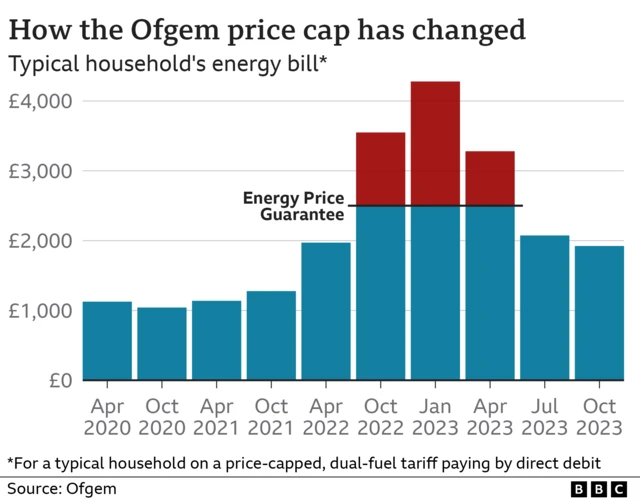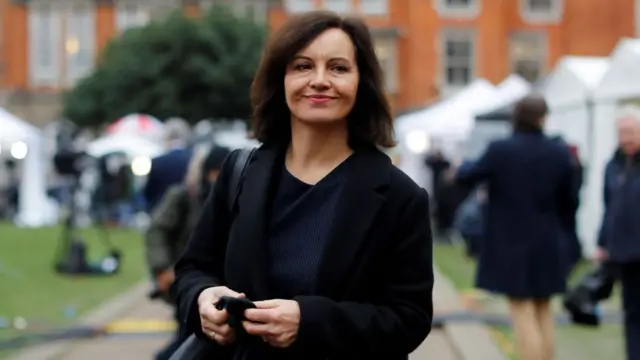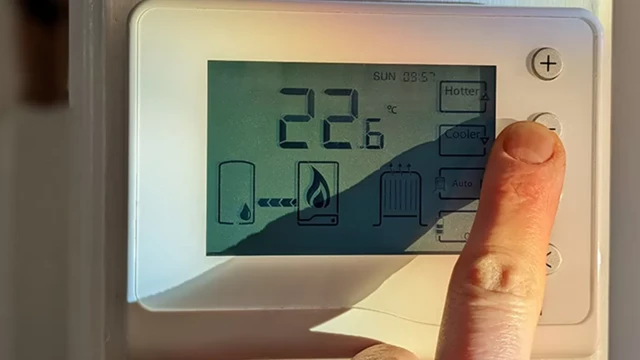Goodbye for nowpublished at 12:43 BST 25 August 2023
We're wrapping up our live coverage on this morning's energy price cap announcement, but you can read our main story rounding up what we learned here.
There's plenty of explainers and analysis across the BBC website so you can delve deeper into some of the points we've covered today, including:
- An explanation of what the price cap actually is
- Advice on how to reduce your bills this winter
- And guidance what to do if you can't afford your energy bill
Thank you for joining us. Today's coverage was edited by Marita Moloney and Jasmine Taylor-Coleman, and the writers were Anna Boyd and Emily Atkinson working alongside our Money and Work team and cost of living correspondent Kevin Peachey.




